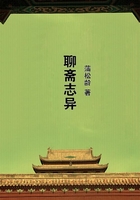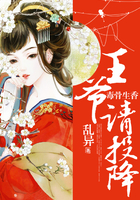The great Florentine historians at the beginning of the sixteenth century were men of a wholly different kind from the Latinists Bembo and Giovio.They wrote Italian, not only because they could not vie with the Ciceronian elegance of the philologists, but because, like Machiavelli, they could only record in a living tongue the living results of their own immediate observations and we may add in the case of Machiavelli, of his observation of the past--and because, as in the case of Guicciardini, Varchi, and many others, what they most desired was, that their view of the course of events should have as wide and deep a practical effect as possible.Even when they only write for a few friends, like Francesco Vettori, they feel an inward need to utter their testimony on men and events, and to explain and justify their share in the latter.
And yet, with all that is characteristic in their language and style, they were powerfully affected by antiquity, and, without its influence, would be inconceivable.They were not humanists, but they had passed through the school of humanism and have in them more of the spirit of the ancient historians than most of the imitators of Livy.Like the ancients, they were citizens who wrote for citizens.
Antiquity as the Common Source We cannot attempt to trace the influence of humanism in the special sciences.Each has its own history, in which the Italian investigators of this period, chiefly through their rediscovery of the results attained by antiquity, mark a new epoch, with which the modern period of the science in question begins with more or less distinctness.With regard to philosophy, too, we must refer the reader to the special historical works on the subject.The influence of the old philosophers on Italian culture will appear at times immense, at times inconsiderable; the former, when we consider how the doctrines of Aristotle, chiefly drawn from the Ethics and Politics--both widely diffused at an early period--became the common property of educated Italians, and how the whole method of abstract thought was governed by him; the latter, when we remember how slight was the dogmatic influence of the old philosophies, and even of the enthusiastic Florentine Platonists, on the spirit of the people at large.What looks like such an influence is generally no more than a consequence of the new culture in general, and of the special growth and development of the Italian mind.When we come to speak of religion, we shall have more to say on this head.But in by far the greater number of cases, we have to do, not with the general culture of the people with the utterances of individuals or of learned circles; and here, too, a distinction must be drawn between the true assimilation of ancient doctrines and fashionable make-believe.For with many, antiquity was only a fashion, even among very learned people.
Nevertheless, all that looks like affectation to our age, need not then have actually been so.The giving of Greek and Latin names to children, for example, is better and more respectable than the present practice of taking them, especially the female names, from novels.When the enthusiasm for the ancient world was greater than for the saints, it was simple and natural enough that noble families called their sons Agamemnon, Tydeus, and Achilles, and that a painter named his son Apelles and his daughter Minerva.58 Nor will it appear unreasonable that, instead of a family name, which people were often glad to get rid of, a well-sounding ancient name was chosen.A local name, shared by all residents in the place, and not yet transformed into a family name, was willingly given up, especially when its religious associations made it inconvenient.Filippo da San Gimignano called himself Callimachus.
The man, mis- understood and insulted by his family, who made his fortune as a scholar in foreign cities, could afford, even if he were a Sanseverino, to change his name to Julius Pomponius Laetus.Even the simple translation of a name into Latin or Greek, as was almost uniformly the custom in Germany, may be excused to a generation which spoke and wrote Latin, and which needed names that could be not only declined, but used with facility in verse and prose.What was blameworthy and ridiculous was the change of half a name, baptismal or family, to give it a classical sound and a new sense.Thus Giovanni was turned into Jovianus or Janus, Pietro to Petreius or Pierius, Antonio to Aoniuss Sannazaro to Syncerus, Luca Grasso to Lucius Crassus.
Ariosto, who speaks with such derision of all this, lived to see children called after his own heroes and heroines.
Nor must we judge too severely the latinization of many usages of social life, such as the titles of officials, of cere monies, and the like, in the writers of the period.As long as people were satisfied with a simple, fluent Latin style, as was the case with most writers from Petrarch to, Aeneas Sylvius, this practice was not so frequent and striking; it became inevitable when a faultless, Ciceronian Latin was demanded.Modern names and things no longer harmonized with the style, unless they were first artificially changed.Pedants found a pleasure in addressing municipal counsellors as 'Patres Conscripti,' nuns as 'Virgines Vestales,' and entitling every saint 'Divus' or 'Deus'; but men of better taste, such as Paolo Giovio, only did so when and because they could not help it.But as Giovio does it naturally, and lays no special stress upon it, we are not offended if, in his melodious language, the cardinals appear as 'Senatores,' their dean as 'Princeps Senatus,' excommunication as 'Dirae,' and the carnival as 'Lupercalia.'
The example of this author alone is enough to warn us against drawing a hasty inference from these peculiarities of style as to the writer's whole mode of thinking.














